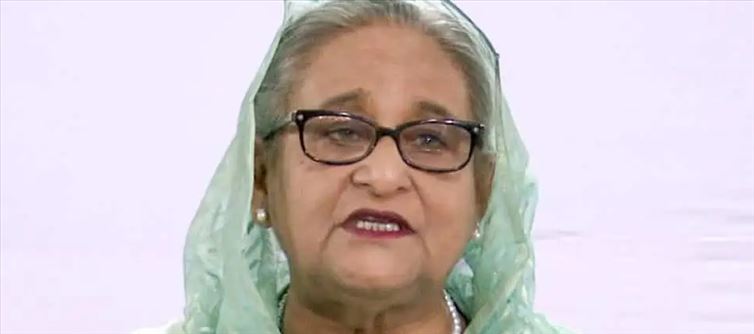Pushpa Telugu Movie Review, Rating
పుష్ప తెలుగు సినిమా రివ్యూ ,రేటింగ్
-
Before Pandora Burns: 8 Avatar Truths You Must Remember Before Fire & Ash
-
Starting at ₹99 Ending at ₹229: The PVR Combo Scam Exposed
-
From Dignity to Destitution: How the BJP Is Strangling India’s 100-Day Jobs Scheme
-
Forget Filters — This AI Prompt Rewrites Time
-
Raped. Fought Back — And The Court Jailed Her For Life.
-
Forget Retirement — This 92-Year-Old Grandma Just Dominated a Tekken 8 Tournament
-
AI Is Not the Villain — You Are: Sreeleela’s Blistering Message to the Internet
-
Match Delayed, Nation Exposed: The Air India Can’t Ignore - Why Lucknow’s Smog Is BJP’s Report Card
-
WhatsApp Launches Festive Stickers
-
Nokia 1100 Breaks All Records!
-
India Tops Global AI Adoption Charts
-
Budget Phone Materials Could Spike 30 Percent!!
-
Akshaye’s Performance Noted for Depth and Authenticity
-
Taskaree – The Smuggler’s Web to Stream on Netflix!!
-
Global Reaction to Reiners’ Shocking Death
-
Film Festival Faces Screening Controversy
-
Meher Castelino, India’s First Miss India, Passes Away
-
Hollywood Mourns the Loss of Gil Gerard at 82
-
Raja Shivaji Promises Scale and Cinematic Grandeur!!
-
Neha Kakkar Grabs Attention Once Again With New Release!!
-
Dhurandhar's Soulful Soundtrack Goes Viral Nationwide
-
Indian and Hollywood Cinema Unite!!
-
Riteish Deshmukh Celebrates His 47th Birthday!!
-
Deteriorating Situation Worries Indian Authorities
-
Massive Fire Erupts in Surat Factory
-
MNREGA Replaced by VB-G Ram Ji Bill
-
Nightclub Owners Arrive in Goa for Probe
-
Rural Employment Bill in Lok Sabha
-
Why Pooja Hegde Ignored Jananayagan’s Second Single— From Onscreen Pair to Offscreen Cold War
-
A Cute Cartoon Snake Is Making China Buy Real Venom - Zootopia 2’s Most Dangerous Side Effect
-
From Air to Food to Currency — Everything Is Failing Except Vote Math
-
The One Sector They’ll Never Digitize — Because That’s Where Black Money Lives
-
If Indians Traveled More, This System Would Collapse
-
Pradeep Ranganathan to Return as Director in 2026
-
Brahmanandam Confident About Gurram Paapireddy’s Success
-
LIK – “Dude Scenario” for Karuppu, Suriya 46 Update
-
A Packed List of Releases This Christmas
-
Tanning Beds Don’t Tan You — They Mutate You. Tripled Cancer Risk, Still Legal
-
Winter Health Tip: Can Eating One Papaya a Day Boost Immunity?
-
“The Story of ‘Rett Thal’ Was a Challenge”: Arun Vijay Shares His Excitement
-
Nora Fatehi to Perform a Special Dance Number in ‘Jailer 2’
-
“Attempt to Newly Include 6.5 Million People in SIR” – Vaiko Alleges
-
Goodbye to Karur, Hello Coimbatore: Senthil Balaji Set for a Political Shift; Stalin’s Strategic Move Draws Attention
-
‘96’ Director to Helm Actor Nani’s Next Film; Official Announcement Expected Soon
-
Trailer of ‘Justice for Jenny’ Film Released
-
₹39.20 Crore Haj House Project Faces Opposition from Hindu Munnani
-
Trump’s New Travel Ban: Geography as Guilt
-
Railway Board Approves Signalling System for Metro Rail Corridor Between Poonamallee and Porur
-
Rain Likely in Seven Districts of Tamil Nadu Before 10 AM, Says Meteorological Department
-
Tamil Nadu Haj House to Be Built Near Anna International Airport at a Cost of ₹39.20 Crore; Foundation Stone Laid by Chief Minister M.K. Stalin
-
BJP MLA Caught Asking for Bribe — Rewarded With Protection
-
Messi Reminded India Who Sports Is Really For — No Politicians. No VIPs. Just Football.
-
‘Sinners’ Isn’t Competing — It’s Taking Over. Eight Oscar Shortlists
-
Oscars Notice Superman — And That Changes Everything
-
Disclosure Day Trailer Drops: Spielberg Returns to Aliens After 40 Years — And He’s Dead Serious
-
Modi Didn’t Strengthen India — He Normalized Loot, Making Suffering Feel Normal
-
Organic Lies or Scientific Illiteracy? The EggOz Storm Explained
-
How Karunanidhi Broke the Brahmin Monopoly? They Call Him Controversial. History Calls Him Revolutionary.
-
Corruption Is Not Hidden in India — It’s Normalized
-
Cameron’s Crown Slips as Avatar Hits Franchise Low - Fire, Ash, and Rotten Scores
-
Bondi Beach Shooter Exposed - Sydney Shooter Traced Back to Hyderabad, Telangana Police Confirm
-
No Lives Matter: How a Nihilist Cult Is Turning Russian Teens Into Killers
-
Not Just the Dollar: The Rupee Is Weak Against Almost Everyone
-
Beijing Didn’t Beg Pollution to Leave. It Crushed It - The Ruthless Plan That Worked
-
15 Countries With The Most Faithful Wives - The Global Loyalty Index No One Dares to Publish
Empowering 140+ Indians within and abroad with entertainment, infotainment, credible, independent, issue based journalism oriented latest updates on politics, movies.
India Herald Group of Publishers P LIMITED is MediaTech division of prestigious Kotii Group of Technological Ventures R&D P LIMITED, Which is core purposed to be empowering 760+ crore people across 230+ countries of this wonderful world.
India Herald Group of Publishers P LIMITED is New Generation Online Media Group, which brings wealthy knowledge of information from PRINT media and Candid yet Fluid presentation from electronic media together into digital media space for our users.
With the help of dedicated journalists team of about 450+ years experience; India Herald Group of Publishers Private LIMITED is the first and only true digital online publishing media groups to have such a dedicated team. Dream of empowering over 1300 million Indians across the world to stay connected with their mother land [from Web, Phone, Tablet and other Smart devices] multiplies India Herald Group of Publishers Private LIMITED team energy to bring the best into all our media initiatives such as https://www.indiaherald.com





 click and follow Indiaherald WhatsApp channel
click and follow Indiaherald WhatsApp channel